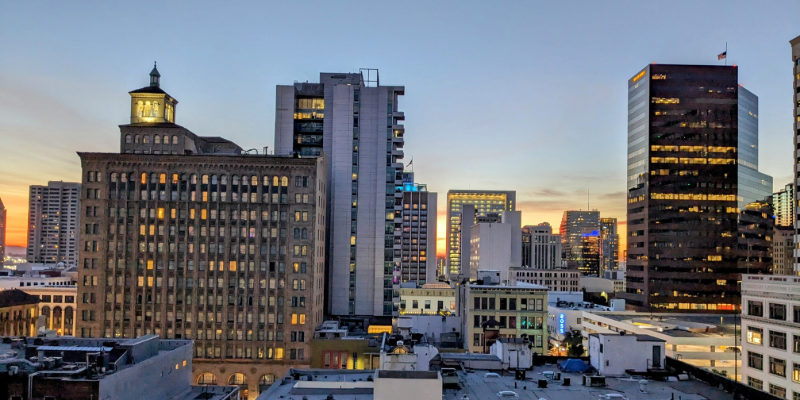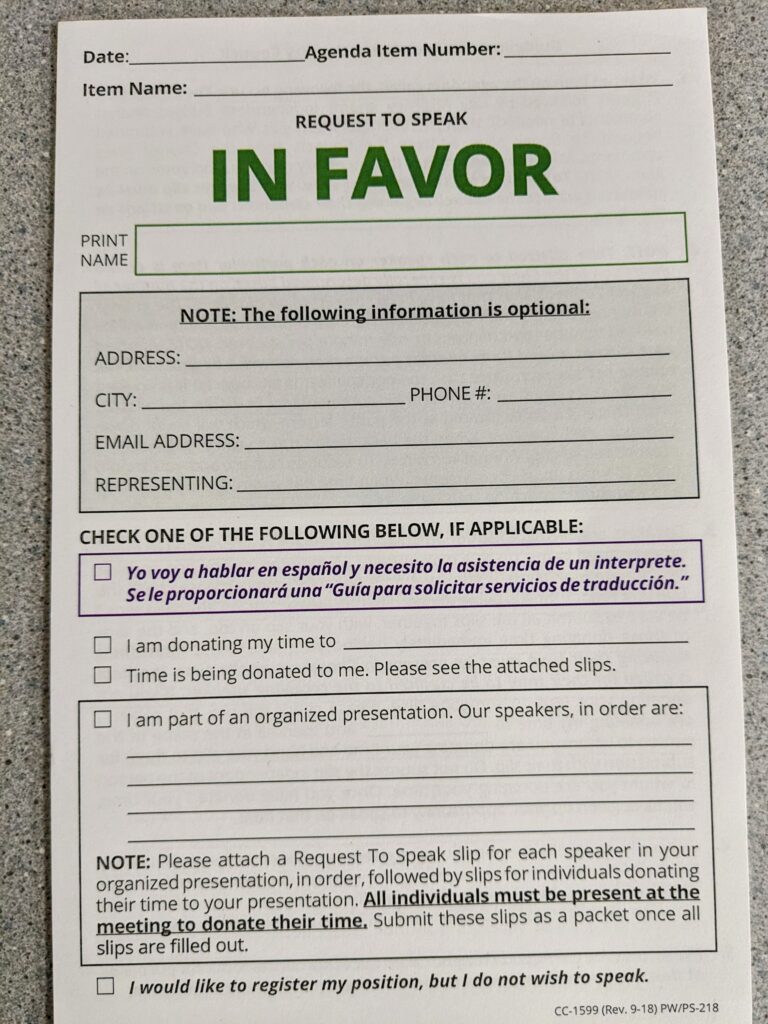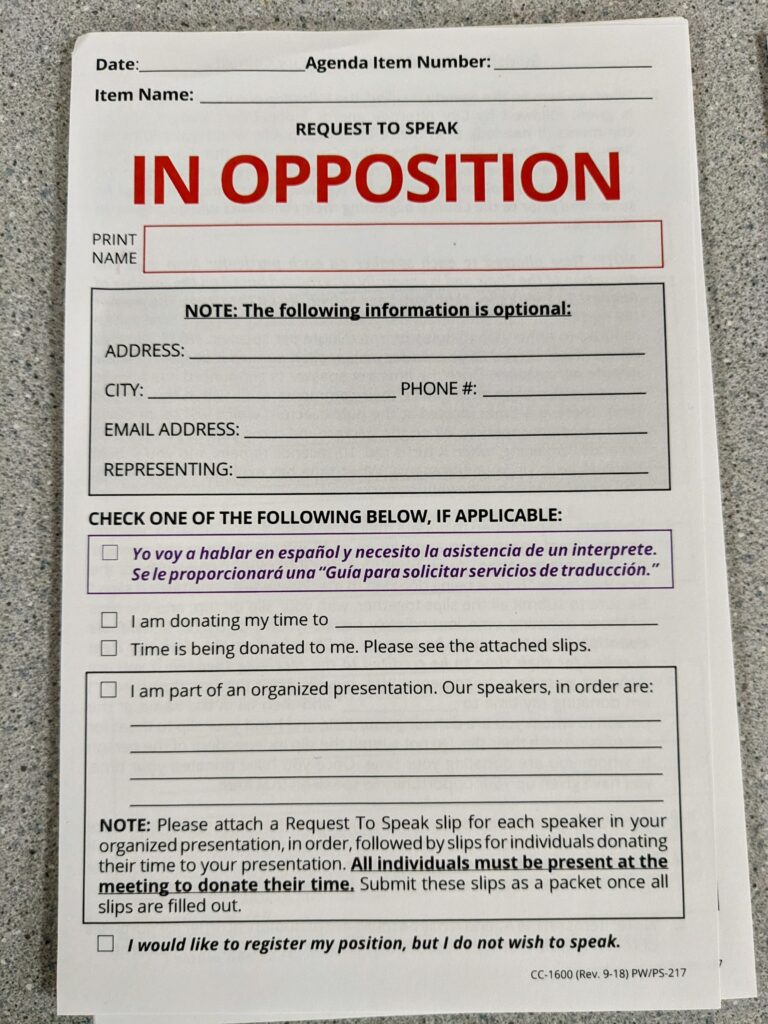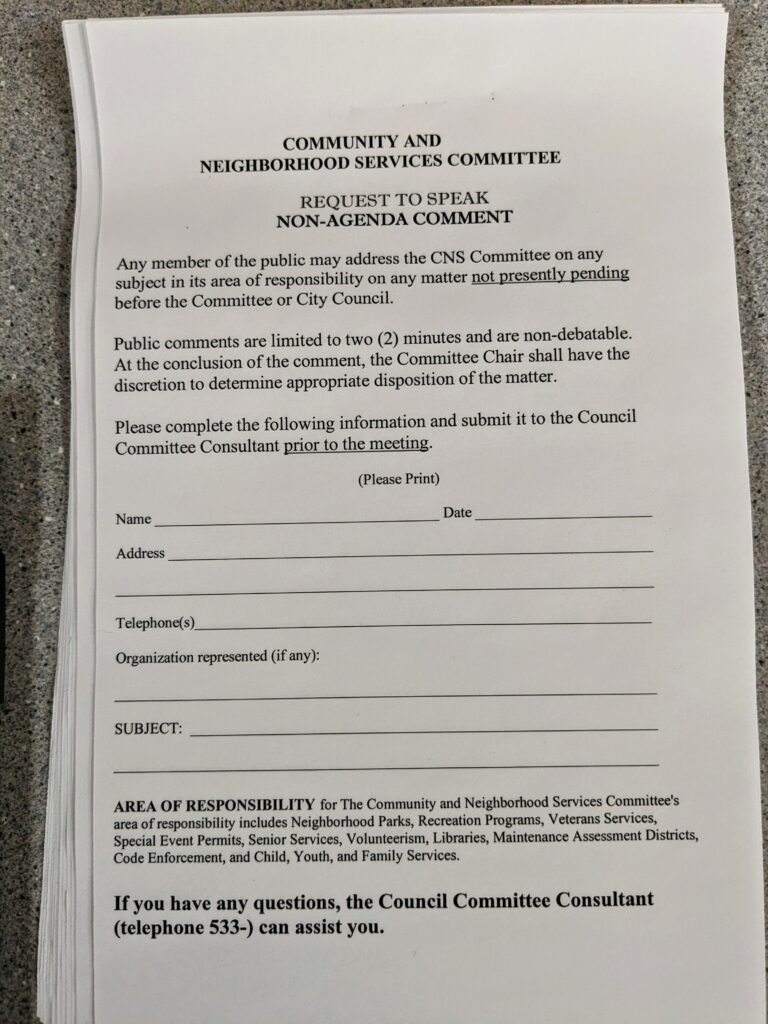
By Shelby Huffaker, MPH | San Diego ASA Co-Chair
We all know that engaging with one’s elected officials is important when advocating for or against important issues affecting the community. One of the primary ways of doing so is to make public comments at your local governing bodies’ meetings (other ways include meeting with officials and/or their staffers one-on-one, voting, or signing petitions). However, thinking about making a public comment in front of policymakers can feel daunting, especially the first time. I know because I have been there. Fortunately, with a little planning, preparation, and practice, it is possible to feel eased and empowered by engaging in this valuable form of civic engagement — especially at a time when it feels like so little is in our control.
Why Is It So Important to Make Public Comments?
Elected officials represent you, their constituent, and therefore need to know where you stand on issues affecting your community. As mentioned above, there are a variety of avenues for officials to engage with constituents, and vice versa. Attending a San Diego County Board of Supervisors or San Diego City Council meeting is just one of these ways, but it has the benefit of helping you — the voter — speak directly to your local representative in a public forum. Seeing and listening to people like you who are directly affected by an issue is critical to convincing them to champion your cause. Another way to think of it is that in the absence of meaningful relationships between lawmakers and their constituents, the loudest messages come from powerful interest groups who have the time and resources to influence policymakers in ways not best for the constituents.
What Are the Different Ways to Make a Public Comment?
In order for a proposed regulation, resolution, or ordinance to take effect, it must be passed by the County Board of Supervisors, the governing body for the county of San Diego, or the City Council, the governing body for the city of San Diego. However, the Board or Council may first direct one of its committees, commissions, or boards to study the proposal further, after which they will decide whether or not to refer it back to the full Board or Council for a vote. You may speak in favor or in opposition to a proposal, listed as an agenda item, at Board, Council, committee, or commission meetings. If the proposal is not on the meeting agenda, you can still speak about it during the non-agenda public comment period (typically at the beginning of the meeting).
Residents of San Diego can make a public comment using any of the following five methods:
First, you can go directly to the meeting venue (typically the County Administration Center on Pacific Highway or City Hall on “C” Street, both in Downtown San Diego) and comment in-person during the allotted time. There are numerous buses and trolleys that arrive right in front of both buildings (check Google Maps or the Pronto app for schedules).
Second, you can dial in over cell phone or Zoom and comment virtually while the meeting is occurring.
Third, you can forgo public speaking altogether by submitting a comment through the County or City’s webform pages, by email, or by U.S. Mail (City only). Written comments are received by the County or City Clerk and distributed to your County Supervisor or City Councilmember.
Fourth, you can opt to be part of an organized group presentation with other people.
Fifth, you can once again forgo speaking by ceding your time to another person. Ceding time is only permitted when attending a meeting in-person.
How Do I Make a Public Comment?
First, check the County or City’s legislative calendars for up-to-date meeting schedules. Find the meeting you want to go to (a list and description of the County boards and commissions and City Council committees and commissions can be found here and here) and click on the date to view the agenda. County agendas must be posted at least 8 days in advance and city agendas must be posted at least 72 hours in advance of public meetings.
In-Person:
Arrive at the County Administration Building or City Hall, aiming for several minutes early to get a seat and submit a speaker slip. Check to see if your topic (the County’s Socially Equitable Cannabis Program or the City’s Cannabis Social Equity and Economic Development [SEED] Program) is on the agenda; if it is, add the agenda item number to the slip. If not, simply continue filling out the form, checking off the box asking if you would like to make a public comment or cede your time to another speaker. You may also choose to simply indicate your support or opposition to an item on the slip without making a comment.
If you are planning to speak with other members of a group, indicate what group you are part of. A minimum of three speakers is required for group presentations to the County and a minimum of five speakers is required for group presentations to the City. The respective time limits for group presentations are 10 and 15 minutes total. Each person in the group will have an opportunity to speak.
There will be a maximum amount of time allotted for you to speak while making a public comment. Depending on how many items are on the agenda or how many people are participating in your group presentation, this can range from one to three minutes, so it is advised to prepare a shorter and longer version of your comment.
Virtual:
There are slightly different processes for participating virtually in meetings for the County versus the City. If participating in a County Board or commission meeting, first fill out a request to speak prior to the start of the meeting. You will receive instructions on how to dial in and speak via phone.
If participating in a City Council or committee meeting, information for participating (including the Zoom link and dial-in phone number) can be found on the City’s website and within the meeting agenda. If you are on Zoom, raise your hand virtually when the clerk announces that public comment on your item is open for online audience members. If you are dialing in via phone, dial *9 to raise your hand and unmute when you are called upon. Similar time allotments, and variations thereof, may apply.
Written:
Submit your comment via the County or City’s webform pages, which can be found linked in the agenda. If writing to the Board of Supervisors, you may also email the County Clerk at publiccomment@sdcounty.ca.gov; similarly, if writing to the City Council, you can email the City Clerk at cityclerk@sandiego.gov or mail your comment to 202 C Street, MS3A San Diego, CA 92101. Check the deadline for when written comments must be received, as the board, council, and their committees and commissions may have differing requirements. If submitting a comment by mail, be sure to plan for ample shipping time.
For All Public Comments:
- Address the board or council
- Find your county supervisor or city councilmember
- E.g., Dear Councilmember X, Good afternoon supervisors…
- Introduce yourself
- State your name and where/what district you reside in.
- Optional: Include a relevant and interesting fact about yourself
- E.g., My name is X and I’m a resident of District 4, a mom, and a lifelong advocate for medical cannabis.
- State your purpose
- State the issue you are commenting on and your position on it.
- E.g., I’m speaking/writing today to express my support for the Cannabis Social Equity and Economic Development proposed code amendments/the Socially Equitable Cannabis Program.
- Explain why you feel the way that you do
- Personal stories are deeply influential!
- E.g., As a medical cannabis patient, I must travel long distances to access my medicine. Increasing safe access by expanding opportunities within the legal cannabis marketplace is a matter of both health and equity.
- E.g., The War on Drugs has failed people of color. It is only right that they get to participate in and benefit from the legal cannabis marketplace.
- E.g., To truly make progress on the County/City’s Equity goals, we must commit to expanding wealth-generating opportunities for people harmed by racist Drug War policies.
- E.g., Before cannabis was legal in California, I was arrested for growing several plants in my house. Even though my criminal history was expunged, I don’t have the resources to start my own cannabis business. This program would help me get on my feet and back to my passion for growing a plant that helps so many.
- Call for action
- End with a clear call for action from your supervisor or councilmember.
- E.g., In sum, I strongly hope that you will support the Cannabis Social Equity and Economic Development proposed code amendments/the Socially Equitable Cannabis Program.
- Thank the supervisors or councilmembers and close your statement
- E.g., That concludes my statement. Thank you for your time.
Just a little preparation goes a long way when making a public comment to your local legislative body. Write up a brief statement, take a deep breath, and know that your perspectives are valued. With a little practice, you will be an effective public commentator in no time.








